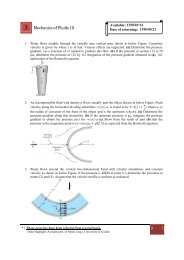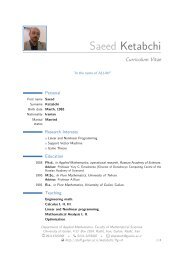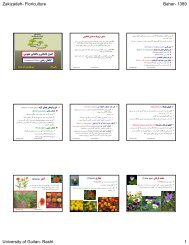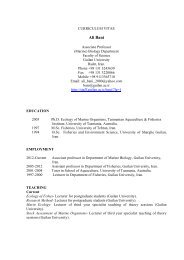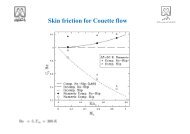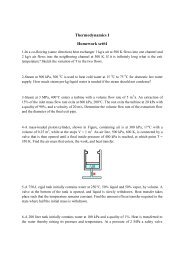Medical Tourism in Developing Countries
Medical Tourism in Developing Countries
Medical Tourism in Developing Countries
- No tags were found...
You also want an ePaper? Increase the reach of your titles
YUMPU automatically turns print PDFs into web optimized ePapers that Google loves.
34 ● <strong>Medical</strong> <strong>Tourism</strong> <strong>in</strong> Develop<strong>in</strong>g <strong>Countries</strong>dependency on the <strong>in</strong>ternational markets that develops (with respect toboth the sale of their primary product and the purchase of <strong>in</strong>puts andtechnology for production). Agricultural regions are at a disadvantagebecause they face unfavorable terms of trade when they export primaryproducts. Such terms of trade have repercussions on <strong>in</strong>come, technology,and development, all of which become characterized by a dependent l<strong>in</strong>kto outside economies.Most components of dependency theories went out of fashion <strong>in</strong> the 80sand 90s, s<strong>in</strong>ce those decades were characterized by the promotion of marketeconomies and big capitalism. Yet, at the turn of the new millennium somedependency concepts have been resurg<strong>in</strong>g. Indeed, those who are opposedto globalization and view it as an American-led method of global exploitationmight also recognize some features of dependency.<strong>Tourism</strong> has borne the brunt of the contemporary dependency literature.Britton applied the orig<strong>in</strong>al dependency theory of the 1970s to tourism, 55while Hall and Tucker edited a volume on the contribution of postcolonialismto tourism studies. 56 The terms “neo-colonialism” and “imperialism”have been used repeatedly <strong>in</strong> the literature. Both are part of thediscussion below on dependency <strong>in</strong> tourism that focuses on key issues ofthe dependency scholarship.<strong>Tourism</strong>-related Dependency <strong>in</strong> Develop<strong>in</strong>g <strong>Countries</strong>After the breakup of the Soviet Union, Cuba stayed afloat largely as a resultof its foreign tourists—medical and leisure—who provided $2.1 billion <strong>in</strong>2003 (half of the country’s hard currency revenues). 57 This did not pleasethe communist authorities because it highlighted Cuban dependency onforeign markets. They are not alone <strong>in</strong> their apprehension. Numerousscholars as well as LDC leaders believe the tourist <strong>in</strong>dustry’s dependency onthe West is dangerous.The roots of their sentiments lie <strong>in</strong> the fact that LDCs supply touristservices purchased mostly by consumers from the MDCs. Thus, economicactivity both directly and <strong>in</strong>directly generated by tourism depends on foreigndemand that is all too often <strong>in</strong>consistent and volatile. If tourism playsan important role <strong>in</strong> a dest<strong>in</strong>ation country, then its GDP is dependent onforeign demand, and a drop <strong>in</strong> tourist visits translates <strong>in</strong>to a decrease <strong>in</strong>national <strong>in</strong>come.Moreover, <strong>in</strong>vestment <strong>in</strong> the tourist <strong>in</strong>dustry often comes from foreignsources (usually Western), further foster<strong>in</strong>g dependency. Accord<strong>in</strong>g to JozsefBorocz, “For dest<strong>in</strong>ation societies, the high concentration of capital <strong>in</strong> the<strong>in</strong>tricately <strong>in</strong>terwoven hotel, airl<strong>in</strong>e and tour operator branches may create



